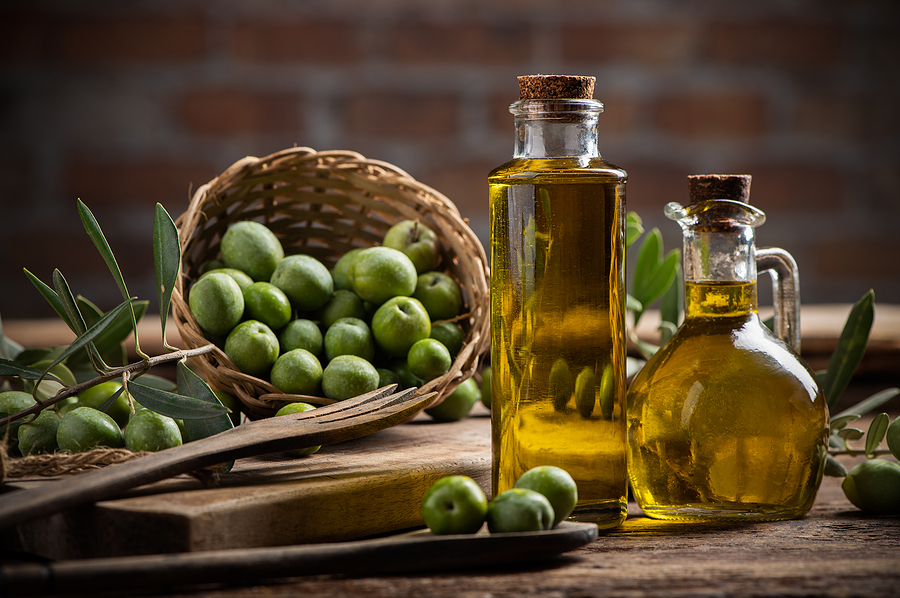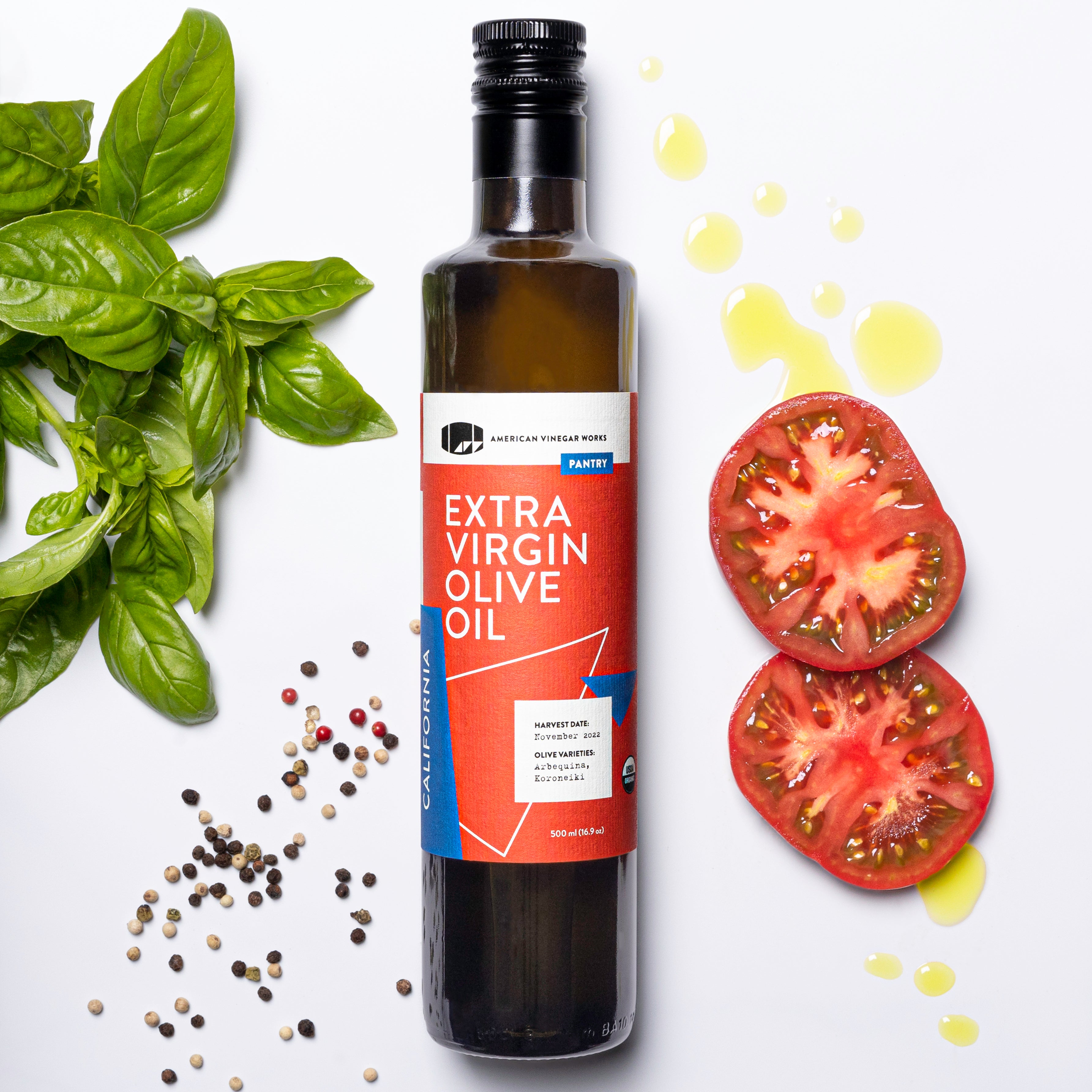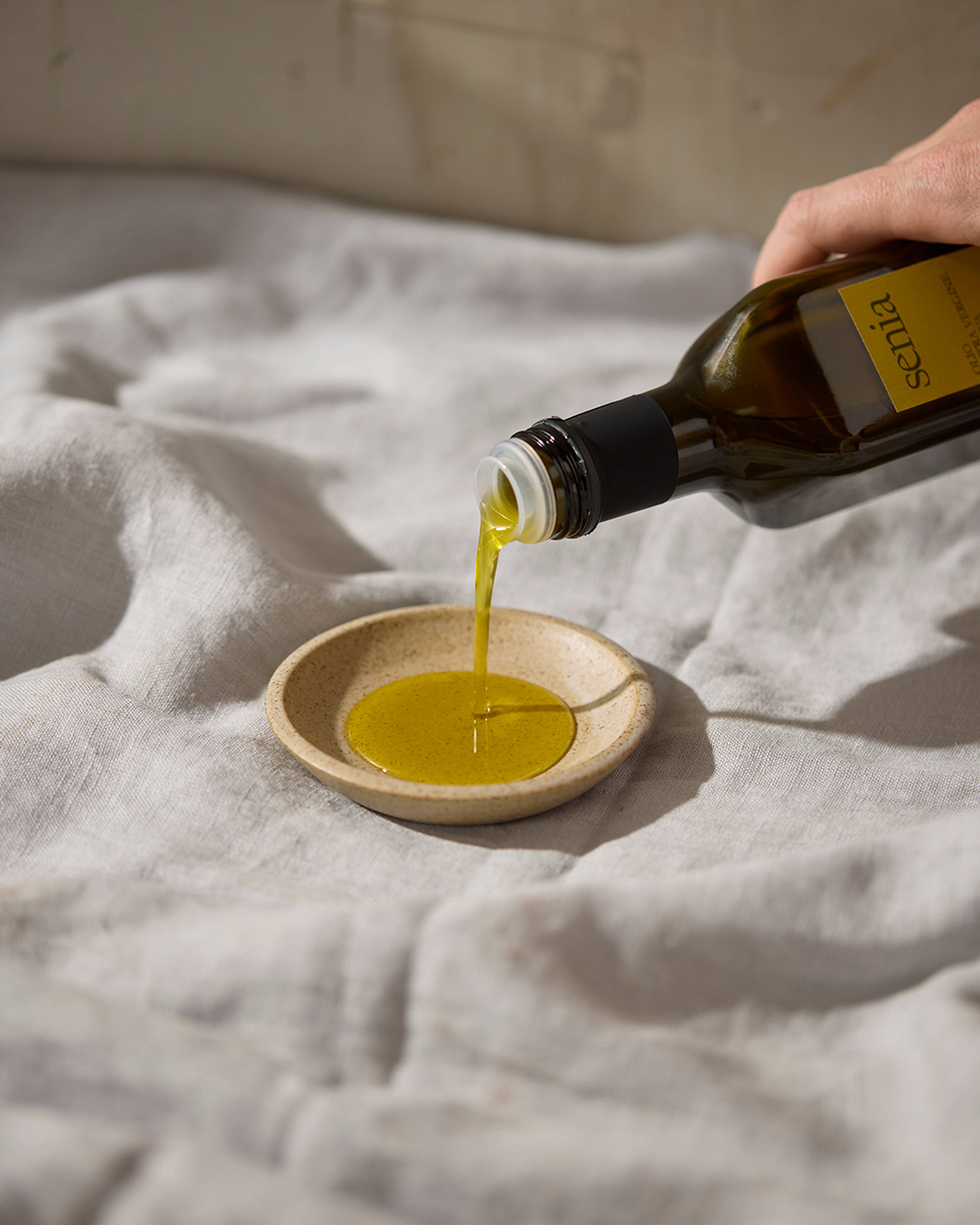Extra Virgin Olive Oil Benefits: The Key to Radiant and Youthful Skin
Wiki Article
Checking Out the Various Kinds Of Olive Oil and Their Uses, Consisting Of Additional Virgin Olive Oil
The exploration of olive oil includes a varied range of types, each offering distinctive flavors and culinary applications. Additional virgin olive oil, renowned for its premium quality and health and wellness advantages, offers as a staple in many kitchen areas, yet it is just one element of this multifaceted component.What Is Olive Oil?
Acquired from the fruit of the olive tree, olive oil is a staple in Mediterranean food and a key component in different cooking applications. This functional oil is produced by pressing whole olives, leading to a liquid that differs in taste, aroma, and color depending on the sort of olives utilized, the region of growing, and the extraction process. Olive oil is mainly composed of monounsaturated fats, specifically oleic acid, which is understood for its potential wellness advantages, consisting of anti-inflammatory homes and cardiovascular support.Along with its cooking uses, olive oil has a long history of application in conventional medicine and skincare, owing to its rich antioxidant content (extra virgin olive oil benefits). The oil is frequently used in dressings, marinades, and for cooking methods such as sautéing and roasting. Its distinctive taste account can improve the taste of various dishes, making it an important ingredient for both home chefs and specialist cooks
Additionally, olive oil is celebrated for its role in the Mediterranean diet regimen, which is linked with many health and wellness benefits. As awareness of these benefits grows, olive oil remains to obtain appeal worldwide as an essential component of a healthy and balanced way of life.
Kinds of Olive Oil
Understanding the numerous sorts of olive oil is essential for both cooking enthusiasts and health-conscious customers. Olive oil is identified mainly based upon its extraction approach and quality, which dramatically affects its taste, health, and scent benefits.
Light olive oil, regardless of its name, describes a lighter flavor and not lower calories. It is ideal for those looking for a much more refined preference in dressings and marinates. Furthermore, there are flavored olive oils infused with herbs, spices, or citrus, which can enhance recipes without the requirement for additional flavoring.
Each kind of olive oil serves details culinary purposes, and recognizing these differences permits customers to make informed selections that line up with their food preparation styles and health objectives.
Extra Virgin Olive Oil
Additional virgin olive oil (EVOO) is commonly regarded as the finest quality olive oil offered, well known for its abundant flavor and countless health advantages. To be classified as added virgin, the oil must be generated from fresh olives using mechanical procedures, without making use of solvents or extreme warmth. This careful method preserves the oil's natural tastes, anti-oxidants, and healthy and balanced fats, leading to a product with a low level of acidity level of less than 0.8%.EVOO is plentiful in monounsaturated fats, specifically oleic acid, which is connected to decreased swelling and improved heart health. It likewise consists of polyphenols, powerful anti-oxidants that may offer protective results against persistent conditions. The flavor profile of EVOO can differ dramatically depending on the olive range and area of manufacturing, ranging from fruity and grassy to durable and sharp.

Culinary Use Olive Oil

In cooking, olive oil can be utilized for sautéing, toasting, and cooking, supplying a healthier alternative to butter or other fats. Its high smoke point makes it suitable for numerous cooking techniques, while its antioxidants add to a heart-healthy diet. Showering olive oil over ended up dishes, such as pasta, fish, or barbequed veggies, can boost tastes and add a touch of elegance.
Moreover, olive oil plays a significant duty in Clicking Here cooking, where it can replace traditional fats in dishes for bread and pastries, imparting dampness and a refined taste. It additionally acts as a base for instilled oils, enabling chefs to trying out flavors such as garlic, herbs, or chili, better broadening its culinary possibility. In general, olive oil's flexibility makes it essential in both home and specialist kitchen areas.
Choosing Top Quality Olive Oil
When choosing top quality olive oil, it's vital to consider numerous essential factors that influence the item's scent, taste, and health benefits. Decide for extra virgin olive oil (EVOO), which is obtained from the first cold pressing of olives and consists of the highest levels of anti-oxidants and valuable compounds. Try to find oils that are licensed by recognized organizations, as this commonly makes certain adherence to stringent high quality criteria.The product packaging additionally plays a considerable duty in maintaining the oil's honesty. Pick oils saved in dark glass containers or tins to shield versus light destruction. Focus on the harvest date; fresher oils supply superior taste and nutritional value, so pick items that are within 18 basics months of their harvest.
Be aware of the preference; a great high quality olive oil ought to have a balance of fruity, bitter, and sharp notes, suggesting its richness and intricacy. By reviewing these aspects, you can ensure you are choosing the ideal olive oil for your culinary needs.
Verdict
In summary, the expedition of various kinds of olive oil discloses unique features and Find Out More applications, with additional virgin olive oil standing for the pinnacle of high quality due to its reduced acidity and high antioxidant web content. Understanding the different selections of olive oil allows for notified selections in cooking techniques, advertising much healthier methods while improving the overall gastronomic experience.Obtained from the fruit of the olive tree, olive oil is a staple in Mediterranean food and a key component in numerous cooking applications.The most common types of olive oil consist of fine-tuned olive oil, pure olive oil, and light olive oil.Additional virgin olive oil (EVOO) is extensively regarded as the greatest high quality olive oil readily available, celebrated for its rich taste and countless health benefits. Choose for additional virgin olive oil (EVOO), which is acquired from the initial cold pressing of olives and includes the greatest degrees of antioxidants and advantageous compounds.In summary, the exploration of various kinds of olive oil reveals distinctive qualities and applications, with extra virgin olive oil representing the peak of top quality due to its low acidity and high antioxidant web content.
Report this wiki page